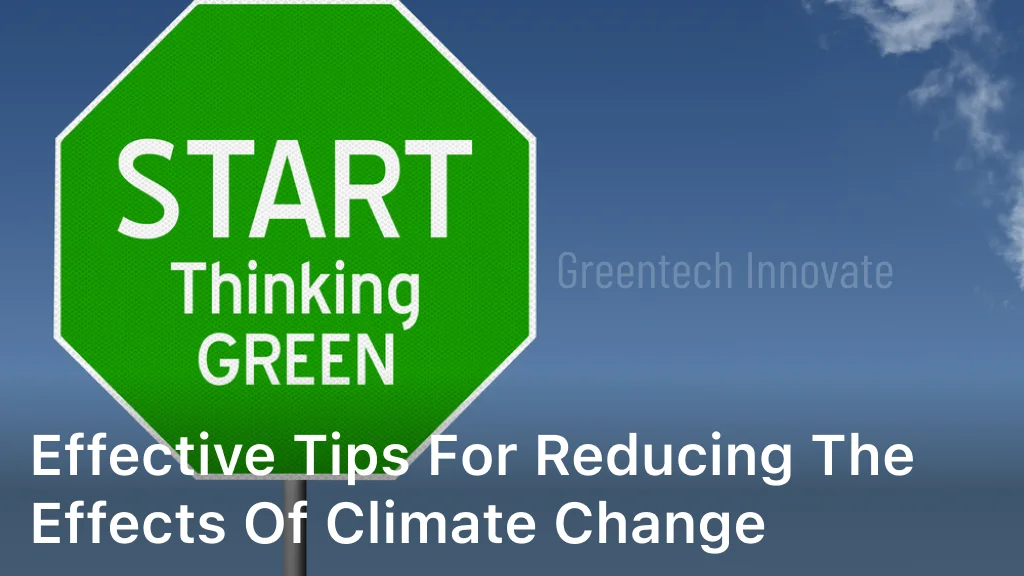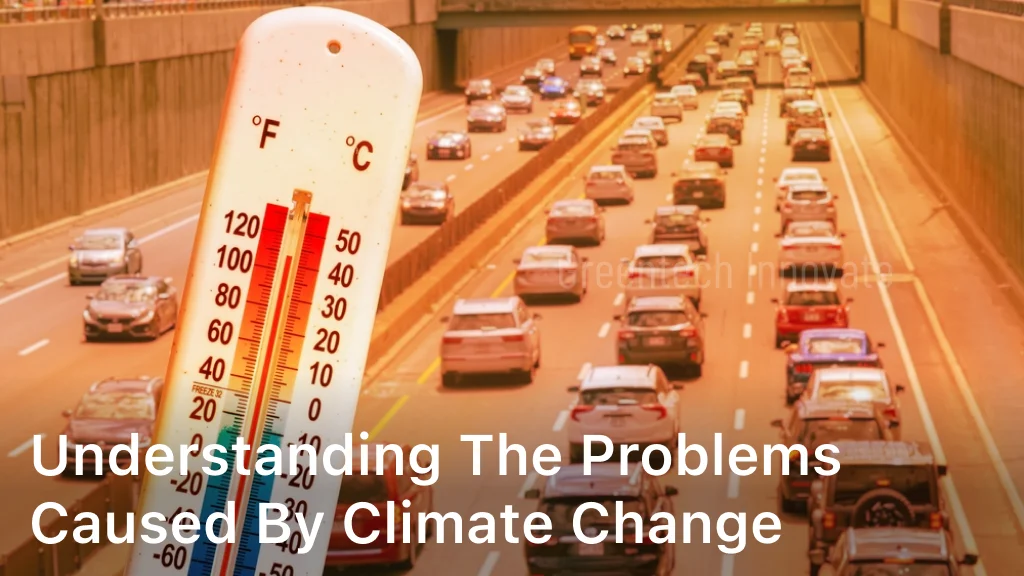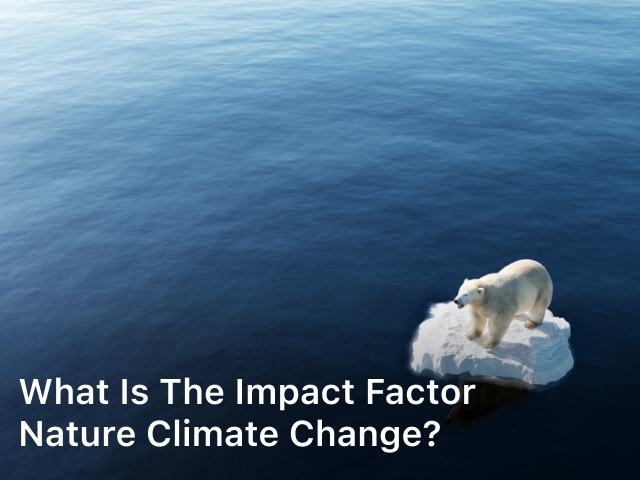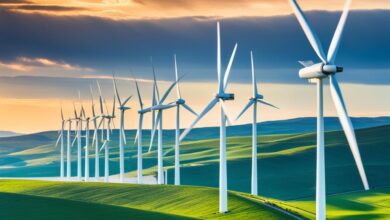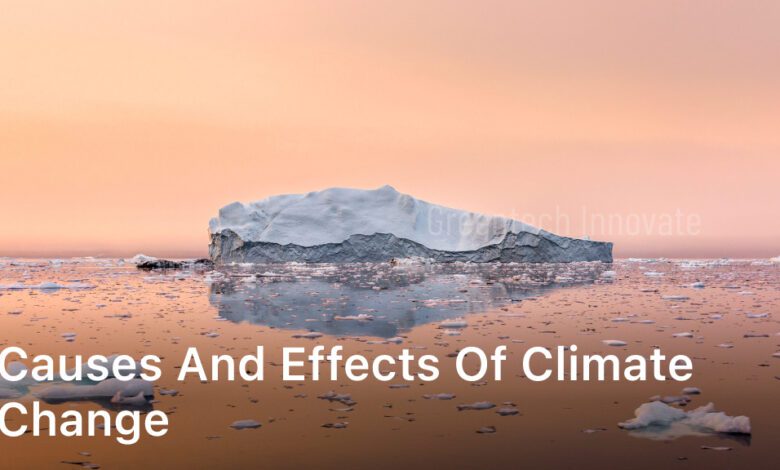
Welcome to our in-depth exploration of the causes and effects of climate change. In this article, we will delve into the factors contributing to global climate change and examine how it impacts our planet. Understanding the causes and effects of climate change is crucial as we face an urgent need to address this pressing issue.
Climate change is a complex phenomenon that arises from a multitude of interconnected factors. Natural processes such as volcanic eruptions, variations in solar radiation, and internal climate variability contribute to changes in Earth’s climate patterns. However, it is the human-induced factors that are primarily responsible for the accelerated pace of climate change we are witnessing today.
Greenhouse gas emissions from burning fossil fuels, deforestation, industrial activities, and agricultural practices are some of the main human activities that significantly contribute to climate change. These emissions trap heat in the atmosphere, leading to a rise in global temperatures known as global warming. The consequences of climate change are far-reaching and affect various aspects of our planet.
The effects of climate change include rising sea levels, melting ice caps and glaciers, more frequent and intense extreme weather events such as hurricanes, droughts, and heatwaves, and disruptions to ecosystems and biodiversity. These climate-related impacts pose significant challenges to human societies, including food and water security, health risks, and potential displacement of communities.
As we continue to explore the causes and effects of climate change in the following sections, it is essential to underscore the urgency of this global issue. By understanding the science behind climate change and its global impact, we can take collective action to mitigate its effects and safeguard our planet for future generations.
Understanding Climate Change Science
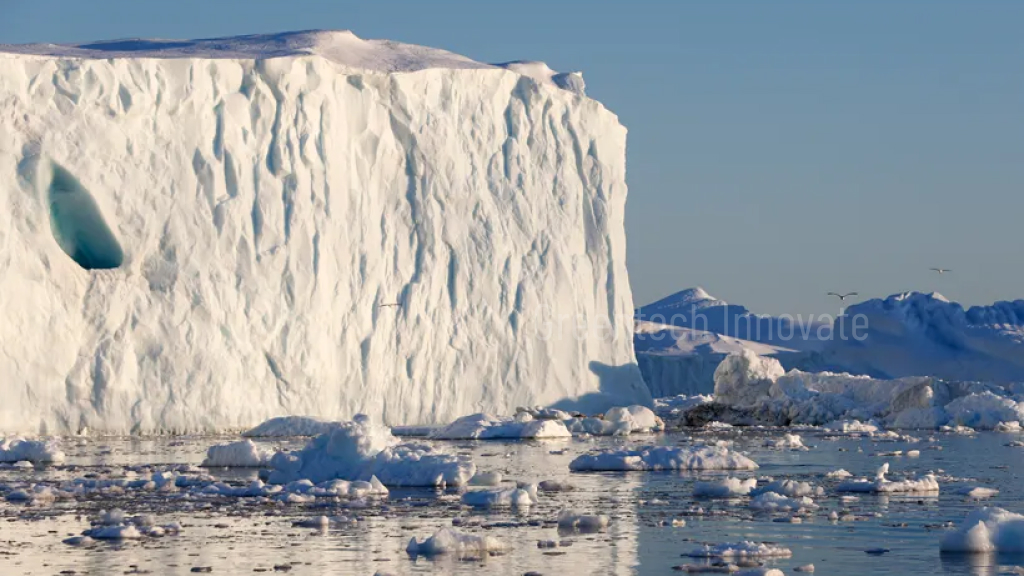
In this section, we will explore the fascinating science behind Earth’s evolving climate patterns. By understanding the underlying factors that influence climate change, we can gain valuable insights into the past, present, and future of our planet’s climate system.
The Role of Greenhouse Gases
One of the key drivers of climate change is the presence of greenhouse gases in our atmosphere. These gases, such as carbon dioxide (CO2) and methane (CH4), act like a blanket, trapping heat from the sun and preventing it from escaping back into space. As the concentration of greenhouse gases increases, so does the Earth’s average temperature.
Human activities, primarily the burning of fossil fuels like coal, oil, and natural gas, contribute significantly to the release of greenhouse gases into the atmosphere. These emissions have dramatically increased since the industrial revolution, leading to a rapid rise in global temperatures over the past century.
Human Activities and Natural Processes
Besides greenhouse gas emissions, various human activities have also contributed to climate change. Deforestation, for example, reduces the Earth’s capacity to absorb CO2, further exacerbating the greenhouse effect. Additionally, changes in land use, such as urbanization and agriculture, can alter local climate patterns.
It is important to note that natural processes also play a role in shaping Earth’s climate. Volcanic eruptions, for instance, release large amounts of ash and gases into the atmosphere, temporarily cooling the planet. Likewise, solar radiation and ocean currents have long-term effects on climate variability.
The Complexity of Climate Models
To better understand and predict climate change, scientists use complex models that simulate Earth’s climate system. These models incorporate various factors, including greenhouse gas concentrations, solar radiation, aerosols, and oceanic circulations. By analyzing historical climate data and running simulations, researchers can study the potential impacts of different scenarios and provide valuable insights for policymakers.
It is crucial to continue studying the science behind climate change to refine our understanding of this complex phenomenon. By doing so, we can develop effective strategies to mitigate its effects, adapt to the changing climate, and preserve the health and stability of our planet for future generations.
Global Impact of Climate Change
Climate change has far-reaching consequences for our planet, impacting various regions and societies around the world. As temperatures continue to rise, ice caps melt, extreme weather events become more frequent, and ecosystems undergo disruption, the global impact of climate change becomes increasingly evident.
The rising temperatures caused by climate change have a profound effect on both land and sea. Heatwaves and prolonged periods of high temperatures are becoming more common, leading to numerous health risks and even fatalities. Moreover, rising sea levels resulting from melting ice caps pose a significant threat to coastal communities, causing flooding, erosion, and the displacement of people from their homes.
Extreme weather events, such as hurricanes, typhoons, and droughts, are becoming more intense and frequent due to climate change. These events not only lead to immediate devastation but also have long-term consequences on agriculture, water resources, and infrastructure. Developed and developing countries alike face enormous challenges in adapting to and recovering from these disasters.
Ecosystem disruptions caused by climate change endanger biodiversity and disrupt delicate ecological balances. As temperatures shift, habitats become unsuitable for many plant and animal species, leading to reduced biodiversity and potential extinctions. Additionally, changes in precipitation patterns affect the availability of water resources, impacting both ecosystems and human populations.
To grasp the global impact of climate change, it is essential to consider its effects on different regions and societies. Let’s take a closer look at how climate change affects three diverse regions of the world: North America, Southeast Asia, and the Arctic.
| Region | Impact of Climate Change |
|---|---|
| North America |
|
| Southeast Asia |
|
| Arctic |
|
These examples highlight just a fraction of the global impact of climate change. The repercussions are felt worldwide, encompassing social, economic, and environmental domains. It is imperative that we take immediate action to mitigate climate change and safeguard the future of our planet.
Conclusion
Throughout this article, we have explored the causes and effects of climate change, shedding light on the urgent need for action. The world is witnessing unprecedented changes in its climate patterns, primarily driven by human activities and natural processes. The overwhelming consensus among scientists is that human-induced greenhouse gas emissions are the primary cause of this global phenomenon.
The effects of climate change are far-reaching and diverse. Rising temperatures have resulted in the melting of polar ice caps and glaciers, leading to a rise in sea levels. This, in turn, poses a significant threat to coastal communities and low-lying areas worldwide. Extreme weather events, including hurricanes, droughts, and heatwaves, have become more frequent and intense, causing extensive damage to ecosystems, infrastructure, and human lives.
To mitigate the impact of climate change, collective action is crucial. It is imperative for governments, industries, and individuals to take immediate steps to reduce greenhouse gas emissions, transition to renewable energy sources, and adopt sustainable practices. Additionally, investing in climate resilience measures and empowering vulnerable communities is of utmost importance to adapt to the changes already underway.
The time for action is now. By addressing the causes and effects of climate change, we can pave the way for a sustainable future and protect the planet for future generations. Let us join hands and work towards a world that prioritizes environmental stewardship, for the well-being of all.
FAQ
What are the causes of climate change?
Climate change is primarily caused by the increase in greenhouse gases in the Earth’s atmosphere. This increase is attributed to human activities such as burning fossil fuels, deforestation, and industrial processes.
How does climate change affect the environment?
Climate change has numerous environmental impacts. It leads to rising temperatures, melting ice caps and glaciers, sea-level rise, more frequent and intense extreme weather events, habitat loss, and disruptions to ecosystems. These changes can have far-reaching consequences for biodiversity, agriculture, and water resources.
What are the effects of climate change on human health?
Climate change poses various risks to human health. It can increase the spread of vector-borne diseases, such as malaria and dengue fever, due to changing patterns of temperature and precipitation. Heatwaves and extreme weather events also pose direct dangers to human well-being, leading to heat-related illnesses and injuries.
How does climate change impact the economy?
The economic impacts of climate change are significant. Extreme weather events can cause widespread damage to infrastructure, businesses, and agricultural systems, leading to financial losses. Additionally, the costs associated with adapting to climate change and transitioning to a low-carbon economy can be substantial.
Can climate change be reversed?
While it is not possible to completely reverse climate change, it can be mitigated by reducing greenhouse gas emissions, transitioning to clean energy sources, conserving natural resources, and adopting sustainable practices. These efforts can help slow down the rate of climate change and limit its long-term impacts.
